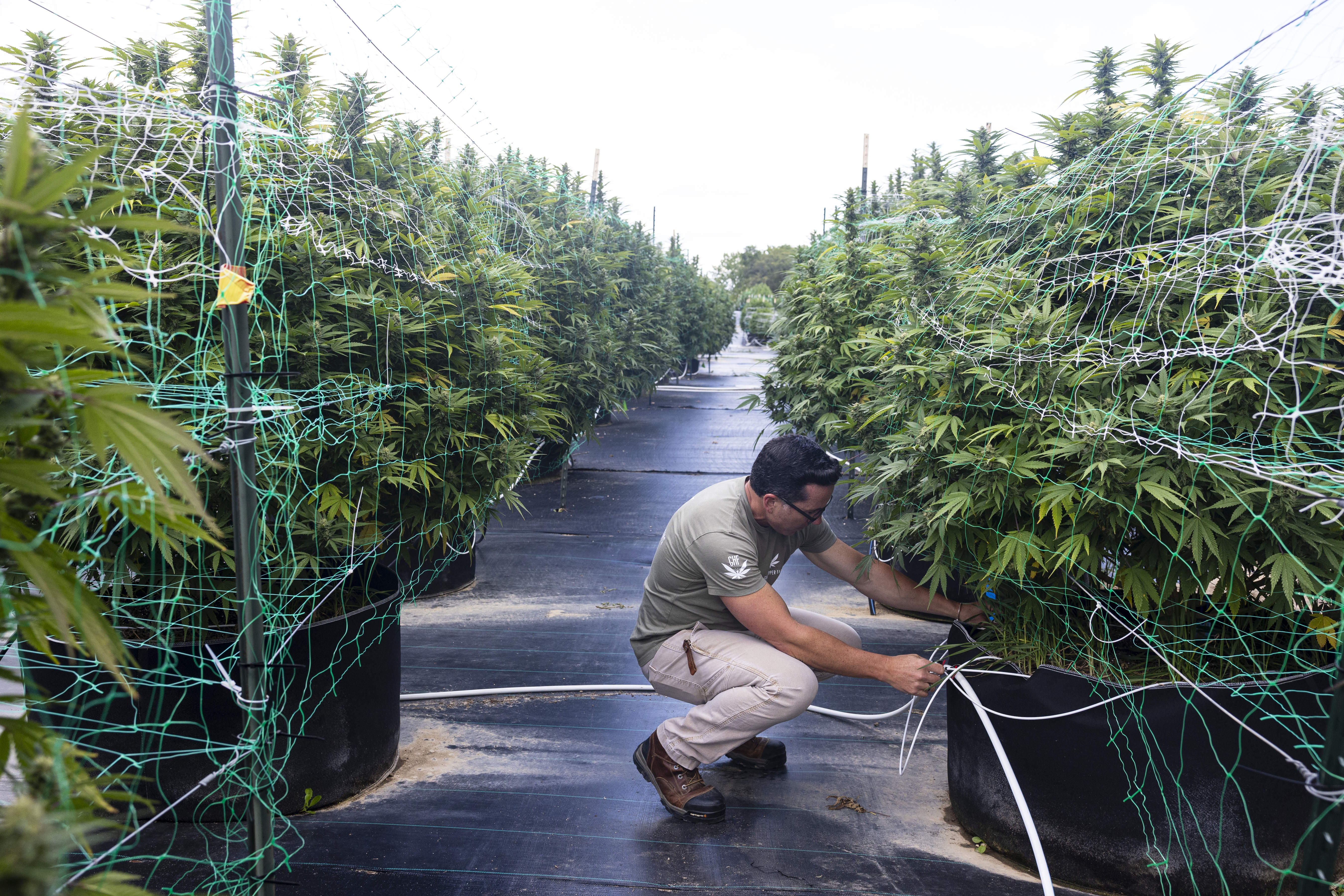Michigan’s Outdoor Cannabis Cultivation: Inside a 6,000-Plant Operation
Michigan has become one of the leading states in the U.S. cannabis industry since voters approved adult-use legalization in 2018. The state now ranks among the top markets for both sales and licensed cultivation. While many businesses operate indoor growing facilities, some companies have expanded into outdoor cultivation. One of the most notable examples is Grasshopper Farms, an outdoor grow spread across 40 acres with approximately 6,000 cannabis plants. This large-scale operation illustrates both the opportunities and challenges of Michigan’s regulated cannabis sector.

The Growth of Michigan’s Cannabis Industry
Since the launch of adult-use cannabis sales in December 2019, Michigan’s market has grown rapidly. According to the Michigan Cannabis Regulatory Agency (CRA), sales reached over $3 billion in 2023, making it one of the strongest cannabis markets in the United States.
Key factors driving this growth include:
-
Consumer Demand: A broad customer base ranging from medical patients to adult-use consumers.
-
Regulatory Structure: Michigan established licensing systems for cultivation, retail, and processing that encourage competition.
-
Lower Prices: Michigan cannabis is often more affordable compared to other states, due in part to strong production capacity.
Outdoor Cannabis Cultivation: An Emerging Trend
While indoor cultivation remains dominant due to year-round production and environmental control, outdoor cannabis grows are gaining traction in Michigan. Outdoor cultivation offers several advantages:
-
Lower Operating Costs – Sunlight replaces artificial lighting, and natural air circulation reduces reliance on HVAC systems.
-
Sustainability – Outdoor grows typically use fewer resources, lowering their environmental footprint.
-
Scalability – Larger land parcels make it possible to cultivate thousands of plants in a single season.
However, outdoor cannabis farming also presents challenges:
-
Dependence on weather conditions.
-
Pest and mold management without the tight controls of indoor facilities.
-
Security requirements to prevent unauthorized access.
Grasshopper Farms: Michigan’s “Green Giant”
Located in Michigan, Grasshopper Farms has gained recognition for its scale. The site spans 40 acres and contains around 6,000 cannabis plants, according to reporting by The ‘Gander.
This makes it one of the state’s largest outdoor cannabis operations. While many Michigan growers operate in smaller facilities or indoor greenhouses, Grasshopper Farms stands out as a large-scale, fully outdoor cultivation project.
Key highlights of the farm:
-
Size: 40 acres of licensed outdoor grow space.
-
Scale: Approximately 6,000 plants, a significant number compared to typical operations.
-
Legitimacy: The grow operates legally under Michigan’s cannabis regulatory framework.
Michigan’s Cannabis Laws and Licensing
All cannabis businesses in Michigan must comply with rules set by the Cannabis Regulatory Agency (CRA). Outdoor cultivation facilities like Grasshopper Farms are required to:
-
Hold a valid state cultivation license.
-
Maintain security systems, including fencing and surveillance.
-
Implement environmental protection measures, such as waste and water management.
-
Follow testing protocols to ensure product safety before retail sale.
The CRA’s oversight ensures that even large outdoor grows remain compliant with public health and safety standards.
Economic Impact of Outdoor Cannabis Grows
Large-scale cannabis farms contribute to Michigan’s economy in several ways:
-
Job Creation – From cultivation staff to logistics and compliance teams.
-
Tax Revenue – Cannabis sales generated over $462 million in tax revenue in 2023, benefiting Michigan schools, roads, and local municipalities (source: Michigan Treasury Department).
-
Local Community Benefits – Licensed farms often partner with nearby towns for services, utilities, and workforce development.
Grasshopper Farms, along with other cultivators, helps sustain Michigan’s position as a national leader in cannabis production.
Comparing Outdoor vs. Indoor Cannabis Grows
| Factor | Outdoor Grow (e.g., Grasshopper Farms) | Indoor Grow |
|---|---|---|
| Energy Use | Low – relies on sunlight | High – artificial lighting |
| Production Scale | Large, seasonal | Medium to large, year-round |
| Costs | Lower per plant | Higher per plant |
| Quality Control | Challenging due to weather/pests | High precision possible |
| Environmental Impact | Lower carbon footprint | Higher energy consumption |
This comparison highlights why some Michigan cultivators are investing in outdoor operations despite the risks.
Challenges Facing Outdoor Cannabis Farmers
Outdoor growers in Michigan must navigate several obstacles:
-
Climate Variability – Michigan’s seasons can be unpredictable, with early frosts or excessive rain impacting crops.
-
Compliance Costs – Security and testing add expenses even in outdoor settings.
-
Market Competition – With prices declining due to high supply, farmers must balance scale with efficiency.
Despite these challenges, large outdoor farms like Grasshopper demonstrate that outdoor cultivation can succeed under Michigan’s regulatory system.
The Future of Cannabis Cultivation in Michigan
Industry experts predict that Michigan will continue to expand its cannabis production. Outdoor cultivation may play a bigger role as businesses seek to reduce costs and increase efficiency. At the same time, regulators and local communities will monitor these large operations to ensure compliance, sustainability, and public safety.
Grasshopper Farms represents a model of what large-scale, legal outdoor cultivation can look like in Michigan. Its success may encourage more licensed cultivators to explore outdoor growing strategies, particularly in rural areas where land is more available.
Conclusion
Michigan’s cannabis industry has become one of the most important in the U.S., generating billions in sales and hundreds of millions in tax revenue. Within this industry, Grasshopper Farms stands out as a large-scale outdoor cultivation site, with 6,000 cannabis plants spread across 40 acres.
The farm’s size highlights the potential for outdoor cultivation to complement Michigan’s already thriving indoor operations. With continued regulatory oversight, outdoor grows like Grasshopper Farms could play a key role in shaping the future of Michigan’s cannabis economy.


